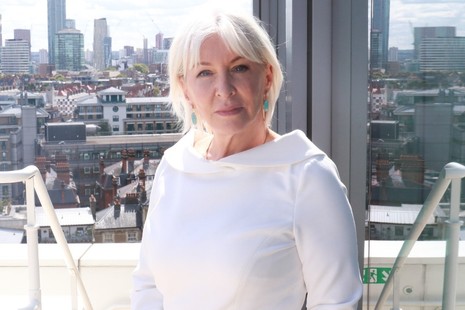Nadine Dorries takes the helm at UK’s DCMS

Nadine Dorries has replaced Oliver Dowden at the head of the ministry that oversees British gaming and the Gambling Commission.
UK.- There are more major changes afoot at the UK government’s Department of Digital, Culture, Media and Sport (DCMS) amid its review of British gambling legislation. In a cabinet reshuffle, prime minister Boris Johnson has named Nadine Dorries to lead the department, which is responsible for overseeing The Gambling Commission.
The DCMS minister for media and data John Whittingdale, who had direct responsibility for the gambling industry, has also left his role after just six months.
Dorries replaces Oliver Dowden as secretary of state for digital, culture, media and sport. Dowden has been made chairman of the Conservative Party. He’ll stay on in the cabinet as a minister without portfolio.
A member of parliament (MP) for Mid Bedfordshire since 2005, Dorries had served as minister of state at the Department of Health and Social Care since May 2020. She takes over responsibility for the DCMS in the middle of its ongoing review of the 2005 Gambling Act.
The review began last year and is expected to introduce wide-ranging changes in the industry. A white paper is expected later this year. The DCMS is also ultimately responsible for overseeing the Gambling Commission’s tender for the British National Lottery, the result of which has been put back to February.
John Whittingdale also leaves role
A replacement for Whittingdale has not been named. He had been seen as supportive of the gambling industry, and had supported the Betting and Gaming Council’s arguments against further restrictions of gambling advertising.
However, he was also accused of having a conflict of interest because of his daughter’s work for a lobbying firm that works for the current National Lottery operator, Camelot.
He said: “I am sorry to be stepping down as Minister for Media and Data and saying goodbye to a great team of ministers and officials.
“It has been a privilege to play a part in shaping the future of UK public service broadcasting and in reforming our data laws using our new Brexit freedom.”











